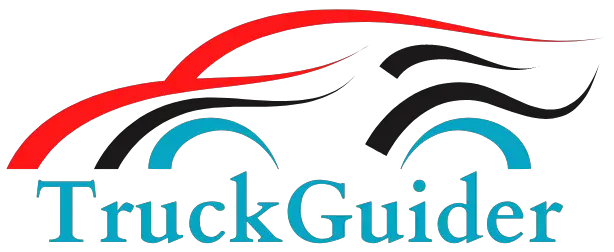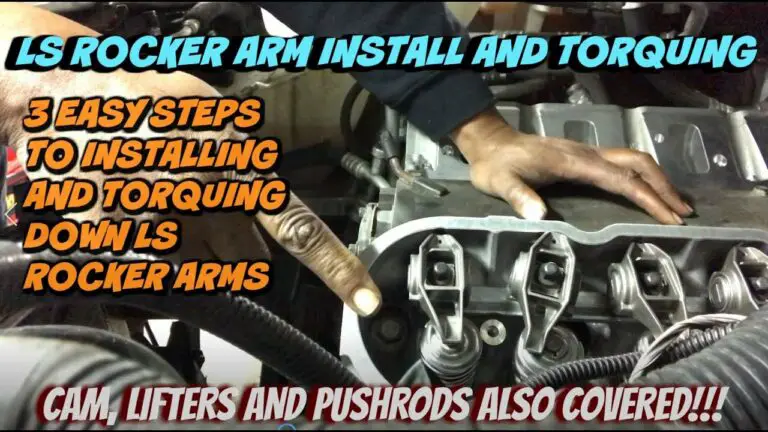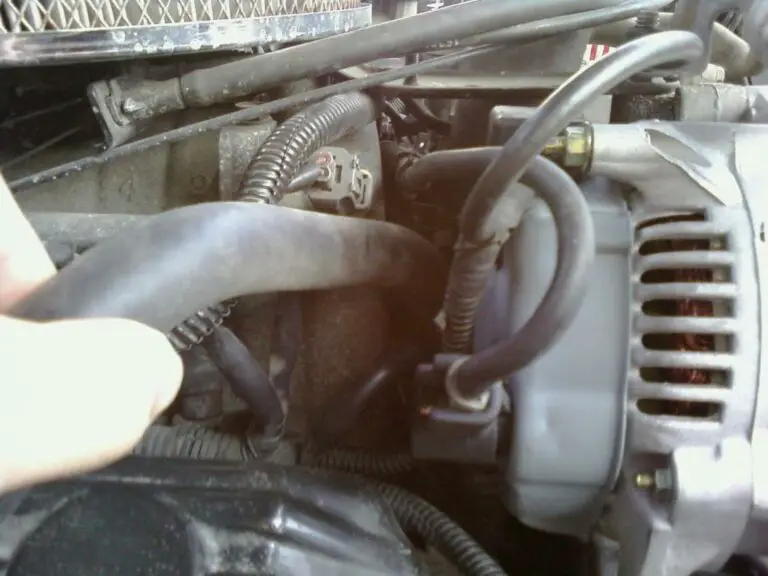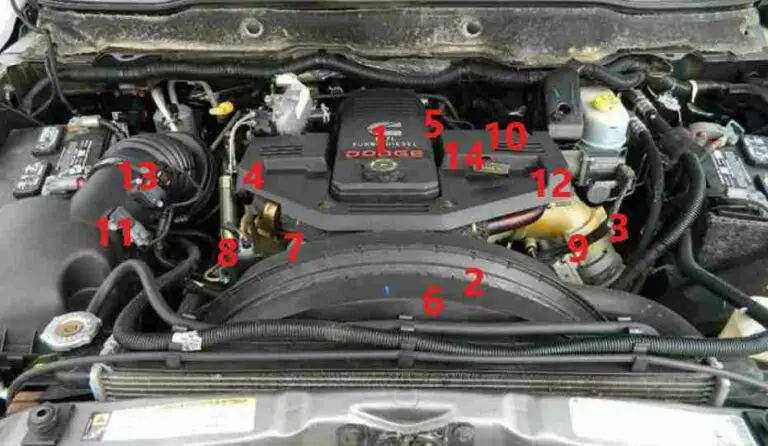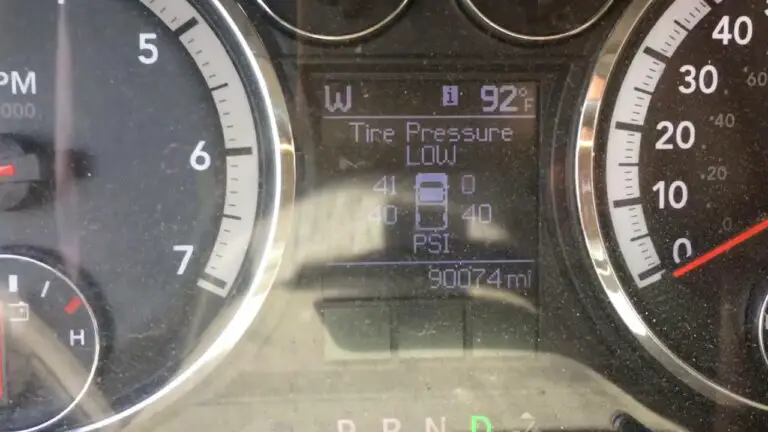Toyota Front Axle Torque Specs
The Toyota front axle torque specs for a 4Runner or Tacoma are as follows: the axle nut should be tightened to 95 lb-ft (128 Nm) using a torque wrench, and the hub bolts should be tightened from an inner bolt to an outer bolt in a star pattern. The inner and middle bolts should be tightened to 77 lb-ft (104 Nm), while the outer two bolts should be tightened to 69 lb-ft (93 Nm). The cotter pin must also be installed after all of these steps have been completed.
It is important that you follow these specifications exactly when tightening your vehicle’s front axles; failure to do so may result in damage or compromised performance.
When it comes to making sure your Toyota is in peak performance, knowing the torque specs for its front axle is an important step. The factory recommended torque spec for the Toyota front axle nut is 137 foot-pounds (186 Nm). Knowing this information can help you check that your vehicle’s axle nuts are properly tightened and ensure safety while driving.
Axle Nut Torque Specifications
What is the Torque on a Front Axle Nut?
The torque on a front axle nut is an important measurement that determines the tightness of the connection between two components. It can be measured using a torque wrench, which measures force applied to an object in order to rotate it about an axis. To ensure proper fit and function, this must be done with precision.
Generally speaking, most front axle nuts require anywhere from 70-90 foot pounds (lb.-ft.) of torque for installation; however, this can vary by make/model as well as other factors such as material type or environment temperature. Additionally, over-tightening the fastener can damage threads or cause unnecessary wear and tear on parts so it’s important to follow manufacturer specifications closely when carrying out any work involving these types of nuts. Taking care to properly tighten your vehicle’s front axle nut will not only keep you safe while driving but will also help preserve the life of your car’s components in the long run.
What are the Torque Specs on Axle Bolt?
When replacing axles on a vehicle it is important to make sure that the axle bolts are properly torqued. Torque specifications for axle bolts vary from vehicle to vehicle and depend on several factors such as the type of bolt, size of the bolt, and engine displacement. Generally speaking, most vehicles use a torque specification between 55 ft-lbs and 120 ft-lbs for axle bolts depending on their application.
It is also important to note that many different types of materials may be used in the construction of an axle; therefore, when replacing an axle it’s essential to consult your owner’s manual or service manual if available before you begin work so you know what type of material was used in its construction. Additionally, because improper torquing can lead to damage or failure in your axles or suspension components it is always recommended that you use a torque wrench while working with any kind of fastener like an axle bolt. In conclusion, when replacing axles on a vehicle always double check the specified torque specs for your particular year/make/model combination before beginning work so that everything will be installed correctly and safely!
What Torque Should a Hub Nut Be?
When it comes to tightening a hub nut, the amount of torque that should be applied is an important factor in ensuring its secure fit. It is recommended to use a torque wrench when securing the hub nut, as this will allow for more precise and consistent measurements. Generally speaking, most vehicles require a torque between 80-110 ft lbs (108-149 Nm).
However, it’s best to check with your vehicle’s manufacturer for exact specifications. Additionally, make sure you are using new nuts and bolts when securing the wheel hub in order to ensure proper installation that won’t come loose after time. When applying pressure from your torque wrench while tightening the nut, always do so slowly and evenly until reaching the desired level of tightness.
This will help prevent over or under torquing which can damage both parts involved. Lastly, always double check all connections before hitting the road!
Do Axle Nuts Need to Be Torqued?
Yes, axle nuts need to be torqued. Properly tightening the axle nut is an important part of automotive maintenance and it should not be overlooked. Torqueing the axle nut helps ensure that the wheel bearings are properly seated in their housings, as well as providing a secure connection between the wheel and its hub assembly.
Additionally, torqueing ensures that there will be no vibrations or wobbling due to a loose fitment of components. To do this correctly, you must use a torque wrench and follow manufacturer’s instructions for your particular vehicle type when applying force to the nut with it. It is advised against using air impact tools for this job due to inconsistencies in power output from one tool/brand to another which can lead to over-torquing or under-torquing of parts on your car – both of which can cause problems down the line if left unchecked!

Credit: trail4runner.com
Toyota Spindle Nut Torque
When tightening the spindle nut on a Toyota vehicle, it is important to use the correct torque. Depending on your specific model and year of production, you should torque the spindle nut between 36-60 ft-lb for most models. Using too much or too little force can cause damage to both the bearing and hub assembly, so following recommended torque specs is essential for safe operation.
2004 Toyota Tacoma Front Axle Nut Torque
When replacing the front axle nut on a 2004 Toyota Tacoma, it is important to torque the nut to its specified value of 116 ft-lbs. Failure to properly torque the nut could result in an unsafe and unreliable vehicle. It is also important that you use a quality lubricant when installing the new axle nut in order to ensure proper performance and prevent future damage or wear.
Axle Nut Torque Specs Toyota Camry
When it comes to axle nut torque specs for a Toyota Camry, the manufacturer recommends that you use 80-96 foot pounds of torque. It is important to make sure that your axles are properly torqued and tightened in order to ensure safe operation and prevent any potential damage or wear on the vehicle’s drivetrain components. When performing this task, be sure to refer to the owner’s manual for information on proper torque specifications as they may vary from model year and/or engine size.
Conclusion
In conclusion, it is important to know the proper torque specs for your Toyota’s front axle when you are repairing or replacing it. By understanding these specifications and following them closely, you can ensure that your vehicle is safe and secure while on the road. With this knowledge in hand, you can be sure that your Toyota will stay reliable for years to come.
